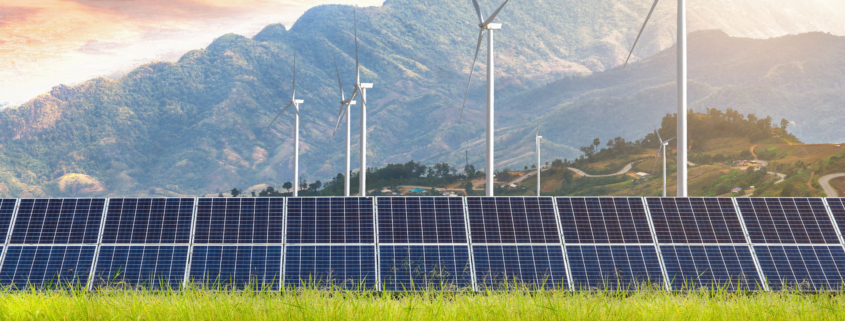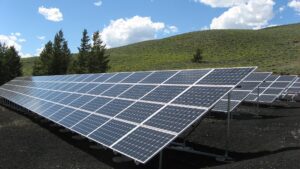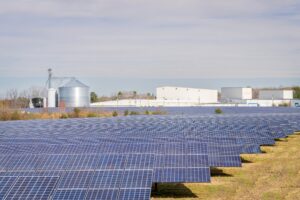Unleashing the potential of renewables in the industry
Written by Wattcrop.
Renewable energy sources have witnessed a remarkable growth trajectory in recent years, redefining the global energy landscape and offering a promising solution to the climate crisis. As industries strive to decarbonize and enhance their sustainability, the integration of renewables has become a vital strategy. However, the true transformative power of renewables lies in their seamless amalgamation with smart technologies, unlocking unprecedented opportunities for the industry. This article explores the convergence of renewables and intelligent systems, highlighting the potential benefits and innovative applications that can revolutionize various industrial sectors.
Advanced Energy Management Systems:
The integration of renewables necessitates sophisticated energy management systems capable of effectively harnessing, storing, and distributing clean energy. Smart grids enable real-time monitoring and optimization of energy consumption, integrating renewable sources seamlessly into existing infrastructures. These intelligent systems optimize energy flows, balance demand and supply, and provide valuable insights for efficient decision-making, resulting in cost savings and reduced environmental impact.
AI-Driven Predictive Analytics:
Artificial intelligence (AI) algorithms empowered by vast datasets offer invaluable predictive capabilities for renewable energy systems. Machine learning models analyze historical and real-time data, weather patterns, and energy consumption trends to forecast renewable energy generation accurately. These predictive analytics enable industrial operations to optimize energy utilization, streamline production processes, and reduce reliance on fossil fuels during peak demand, leading to enhanced efficiency and sustainability.
Renewable-Powered Microgrids:
Microgrids, localized energy distribution networks, have emerged as a compelling solution to enhance energy resilience and ensure uninterrupted power supply. Integrating renewables within microgrids allows industries to generate, store, and distribute their clean energy, reducing reliance on centralized grids. By leveraging intelligent control systems, industries can dynamically manage energy sources, balance loads, and prioritize renewable generation, resulting in improved grid stability, cost-effectiveness, and reduced carbon footprint.
Energy Storage and Battery Innovations:
The intermittent nature of renewable energy sources necessitates effective energy storage solutions to overcome fluctuations in generation and demand. Intelligent battery systems, such as flow batteries and advanced lithium-ion technologies, enhance energy storage capacity, flexibility, and reliability. Moreover, machine learning algorithms optimize battery performance, prolong lifespan, and enable efficient load management, revolutionizing industrial energy storage and paving the way for greater renewable integration.
Renewable Energy-Powered Industrial Processes:
Beyond electricity generation, renewables offer the potential to transform various industrial processes. From solar thermal heating and cooling systems to biomass-based biofuel production, intelligent utilization of renewable energy sources can replace fossil fuels in manufacturing, heating, and transportation. This shift not only reduces greenhouse gas emissions but also opens avenues for circular economy practices, where waste streams from industrial processes become valuable inputs for renewable energy production.
The convergence of renewables and intelligent systems marks a pivotal moment in the industrial sector’s pursuit of sustainability and decarbonization. By embracing advanced energy management systems, AI-driven predictive analytics, renewable-powered microgrids, energy storage innovations, and renewable energy-powered industrial processes, industries can unlock tremendous benefits. The smart integration of renewables enables enhanced efficiency, cost savings, reduced environmental impact, and a path toward a greener and more sustainable future for the industry. Embracing the intelligent revolution in renewables is not only a strategic imperative but also a catalyst for innovation, growth, and resilience in the face of global energy challenges.






